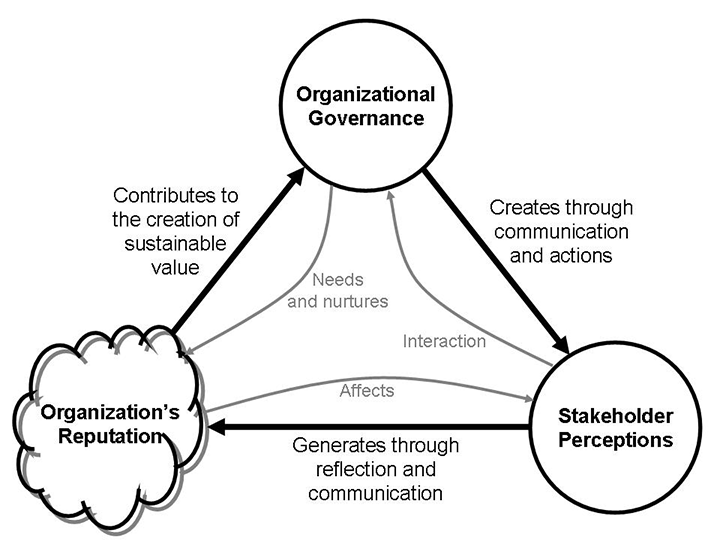Linking project governance with stakeholder value
The primary purpose of an organisation of any type is to create sustainable value for its stakeholders. It is generally understood that a favourable reputation is a key contributor to organisation’s ability to create sustainable value.
However, while a well-governed organisation needs, and seeks to nurture, a favourable reputation because the reputation affects the way stakeholders interact with the organisation, it is not possible to generate a reputation directly. The organisation’s reputation is created and exists solely within the minds of its stakeholders.
The various actions of the organisation and the way the organisation engages with its wider stakeholder community create perceptions in the minds of stakeholders about the organisation. These perceptions are reinforced by stakeholder-to-stakeholder communication, and the aggregate ‘weight’ of these perceptions generates the reputation.
Actions speak louder than words: most of an organisation’s reputation will be based on the actual experiences of a wide range of stakeholders and what they tell other stakeholders about these experiences and interactions, a dialogue that gets easier as various social networking tools become ever more widely used.
The art of governance is firstly to determine the reputation the organisation is seeking, then to create the framework within which management decisions and actions will facilitate the organisation’s interaction with its wider stakeholder community, consistent with the organisation’s communicated objectives.
An organisation’s ‘real reputation’ is not a function of advertising or smart posters and slogans, it is a function of the opinions held by thousands, if not millions of individual stakeholders fed by all of the diverse interactions, communications, social media comments and other exchanges stakeholders have with other stakeholders. Through this process of communication and reflection, the perception of a reputation is developed and stored in each individual’s mind. No two perceptions are likely to be exactly the same, but a valuable ‘weight of opinion’ will emerge for any organisation over time.
This means the relevant group of stakeholders important to the business will determine for themselves if the organisation is substantially ‘good’ or ‘bad’. And because the sheer number of stakeholder-to-stakeholder interactions, once an opinion is generally ‘held’, it is very difficult to change.
The message is simple: if you want a good reputation that enhances your business in the age of social media, it has to be genuine and earned. Why does this matter to project managers? For the simple reason almost every project has interactions with external stakeholders and every one of these exchanges will contribute to the overall perception of your organisation. Actions speak louder then words and projects are a focus of action!


